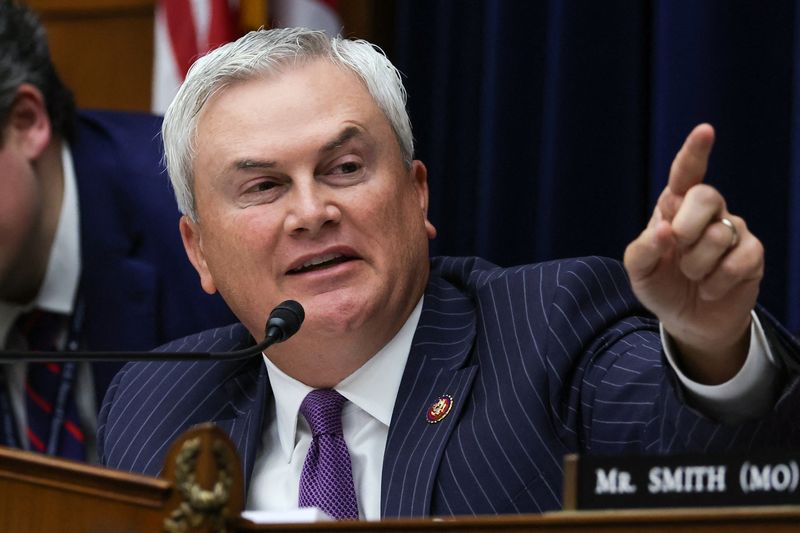Investing.com’s stocks of the week
By David Shepardson
WASHINGTON (Reuters) -A senior Republican lawmaker, expressing concern for the gun manufacturing industry, on Tuesday asked the Biden administration to turn over records about its Oct. 27 decision to temporarily stop issuing export licenses for most civilian firearms and ammunition.
Representative James Comer, chair of the U.S. House Oversight Committee on Tuesday, asked Commerce Secretary Gina Raimondo for documents and communications saying the committee wants "a full accounting of this action and how it will impact U.S. firearms manufacturers and the jobs that industry provides."
The Commerce Department's 90-day pause on export licenses for firearms and ammunition sales to non-governmental users has some exemptions including export licenses for Ukraine and Israel, as well as some other close allies.
The Commerce Department, which did not immediately respond to a request for comment, said in October an urgent review would assess the "risk of firearms being diverted to entities or activities that promote regional instability, violate human rights, or fuel criminal activities."
Comer's letter seeks a range of material including all documents and communications between the Commerce Department and the White House on the issue by Dec. 13 and a staff briefing by Dec. 6.
Earlier this month, 46 Republican senators including Mitch McConnell and John Thune said they had "significant concerns about the justifications for and ramifications of this pause" and said it "puts at stake U.S. commercial and economic interests" as well as U.S. national security and foreign policy.
The senators cited an industry association estimate of a direct cost of at least $89 million from the 90-day pause.
Republican Representative Mark Green, who chairs the Homeland Security Committee, similarly led a separate letter earlier this month from more than 80 lawmakers seeking answers on the pause.
The Republican party has consistently defended gun ownership rights under the U.S. Constitution, while many Democrats have called for new restrictions after a series of mass shootings.
The halt covers most of the guns and ammunition that could be purchased in a U.S. gun store.
Overseas customers include distributors and stores that sell firearms.
